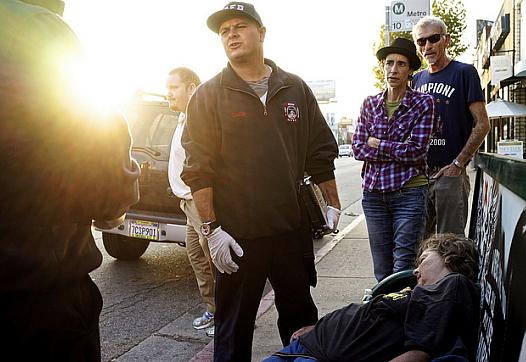![The Rev. Thomas Walker sings during a service at Ebenezer Missionary Baptist Church in Rocky Mount. He was diagnosed with an aggressive form of prostate cancer at age 47 and has become a prostate cancer activist. [Photo credit: Ethan Hyman/NewsObserver.com]](/sites/default/files/styles/teaser_list_thumbnail_large/public/title_images/EBENEZER02-042615-EDH-1200_0.jpg?itok=_bzQ2bp_)
African American men in North Carolina suffer from some of the world’s highest rates of prostate cancer, but it's not exactly clear why. That tip was enough to launch News & Observer reporter Jay Price on a long reporting journey that would take him to churches, barber shops and community meetings.








